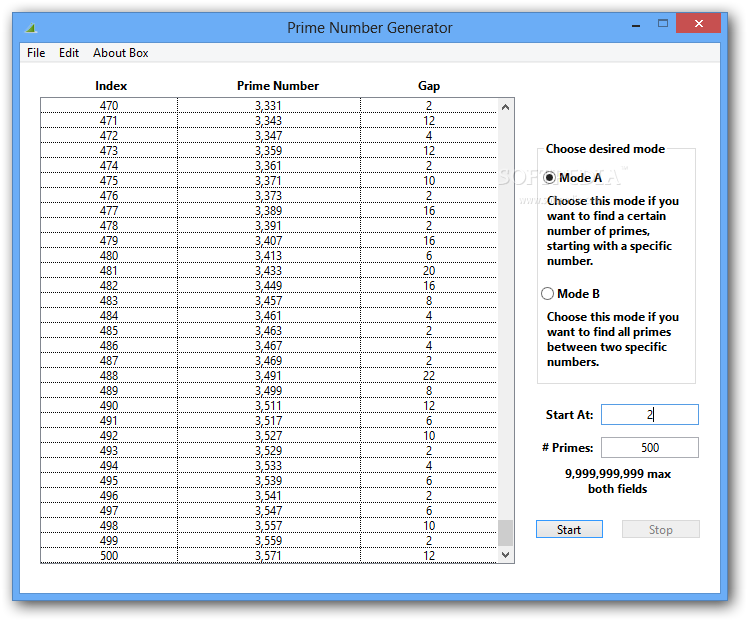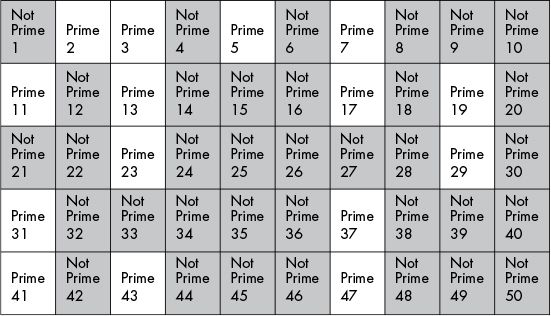

noprimes set(j for i in range(2, 8) for j in range(i2, 50, i)) We are using a set in this case because we only want to include each multiple once.

Therefore, if we want to generate a list of non-primes under 50 we can do so by generating multiples. The bad fact is that the list of the prime. Prime numbers contain the numbers 3 and 7, which is considered the luckiest numbers. An interesting fact about prime numbers is that two is the only prime number that is even. For example, between 0 and 100k, 9592 numbers are prime.
#GENERATE LIST OF PRIME NUMBERS GENERATOR#
Timings were measured using the command: python -mtimeit -s"import primes" "primes. This prime numbers generator is used to generate the list of prime numbers from 1 to a number you specify. A prime number is one that is only divisible by 1 and itself. You can generate prime numbers at different intervals.

Of all the methods tested, allowing numpy, for n=1000000, Of the plain Python methods tested, without psyco, for n=1000000, Note that the maximum first number of primes is 10000 and the maximum ending between entry is 104730. The right-hand option will create a set of primes between the two numbers you enter. Of the plain Python methods tested, with psyco, for n=1000000, The left-hand option will generate a list from the number 2 through the number of primes you enter in the field. Many thanks to stephan for bringing sieve_wheel_30 to my attention.Ĭredit goes to Robert William Hanks for primesfrom2to, primesfrom3to, rwh_primes, rwh_primes1, and rwh_primes2. Warning: timeit results may vary due to differences in hardware orīelow is a script which compares a number of implementations:


 0 kommentar(er)
0 kommentar(er)
